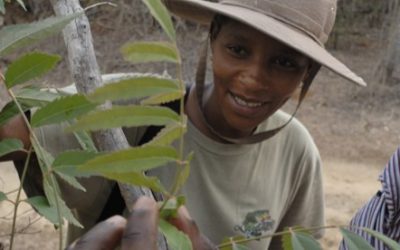A major challenge for early career researchers is letting the world know about their important conservation work. Publishing is a sign of quality in research and can ultimately help inform management decisions to conserve species and their habitats.
The TBA has just delivered its first online course on scientific writing, and it proved to be a resounding success. We were delighted to be invited by the Development Corridors Partnership to deliver this course as part of their virtual training programme for development corridor planning and management in Africa. TBA already runs “face to face” courses on scientific writing, but this time our students would be hundreds, even thousands of miles away. It was important to design something that would retain TBA’s interactive and innovative teaching approaches – yet all carried out online.
Imagine being able to sit in your home in Kenya, and discuss the barriers you face to publishing with students from Tanzania, China and UK and then work together on practical exercises to improve data presentation skills and how to structure a scientific paper. We used interactive sessions and small-group chats to ensure that our course was as practical and interactive as our face to face courses. Lucy Waruingi from the African Conservation Centre said we had made writing a paper seem far easier than she has had previously thought. Our group told us that they had not received any training in scientific writing so far, and they are now primed to go ahead and write their papers.
TBA’s portfolio of courses is about to grow even more as we launch our exciting eLearning strategy next year – thanks to a generous grant from the MAVA Foundation.
And to give you an idea of our range of courses we already teach, check out the TBA Annual Review. Before you ask, unfortunately, our field training courses for 2020 have been postponed, but we plan to run them in 2021 if it is safe to do so.
Many thanks to the UNEP-World Conservation Monitoring Centre and the Department of Geography at University Cambridge and the Development Corridors Partnership which is helping countries in East Africa to plan for a sustainable future.



